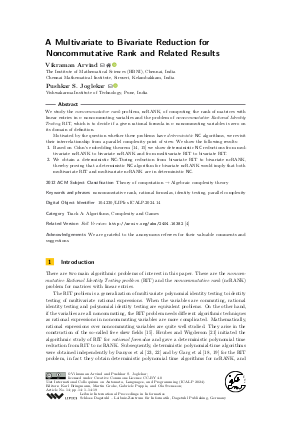LIPIcs.ICALP.2024.14.pdf
- Filesize: 0.8 MB
- 19 pages

 Creative Commons Attribution 4.0 International license
Creative Commons Attribution 4.0 International license









Feedback for Dagstuhl Publishing